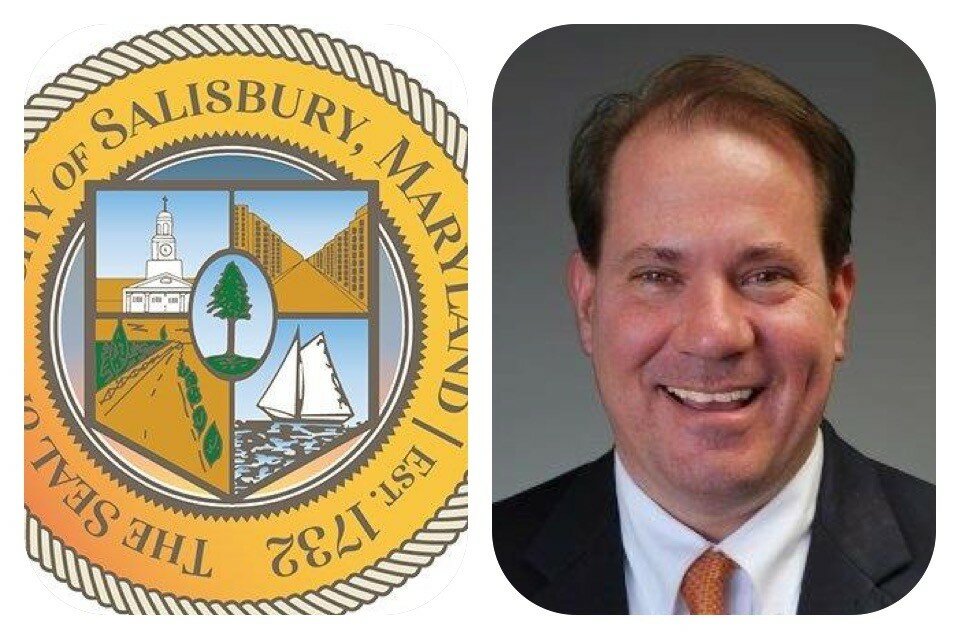Randy Taylor extends lead in Salisbury mayor's race
Randy Taylor was leading in the Salisbury mayor’s race by 56 ballots after votes were counted Tuesday night.
On Thursday, following the first round of absentee counting, Taylor’s …

You must be a member to read this story.
Join our family of readers for as little as $5 per month and support local, unbiased journalism.
Already a member? Log in to continue. Otherwise, follow the link below to join.
Please log in to continue |
Randy Taylor extends lead in Salisbury mayor's race
Randy Taylor was leading in the Salisbury mayor’s race by 56 ballots after votes were counted Tuesday night.
On Thursday, following the first round of absentee counting, Taylor’s lead over Megan Outten had grown to 65 votes.
The 58-year-old Camden Avenue resident who centered his campaign on questioning Downtown parking and redevelopment decisions, received 88 of the 220 absentees counted by hand Thursday.
Outten received 79 more votes, while Jermichael Mitchell received 51 new votes.
That makes the total 1,120 votes for Taylor, 1,055 for Outten and 861 votes for Mitchell – or 37 percent to 35 percent to 28 percent.
A second and final count will occur Friday, Nov. 17, and then the contest could be called as final. The county Elections Board will accept mail-in ballots postmarked by Election Day.
Still, given the new votes tabulated Thursday in Taylor’s favor, it seems certain he will succeed Jack Heath as the 30th mayor in the city’s history.
Taylor is a former commercial banker with M&T Bank and political conservative who now restores homes and operates a rentals business.
Six years ago, he left the banking industry to form a historic restoration business.
During the campaign, he voiced frustration with the city’s government, saying it helped propel his candidacy, though he had thought for years about seeking the mayor’s seat.
A lifelong Salisbury resident, Taylor purchased his current North Camden home in 2000, converting it from a 14-unit rooming house into a grand single-family home, where he and his now former wife raised their two children.
“I saw things no one seemed to be aware of,” he said when discussing the genesis of his campaign. “I saw things happening where there didn’t seem to be broad community buy-in.”
Taylor has repeatedly questioned the manner in which the city has disposed of its surplus properties. Developers bid on these tracts – most of which have been in the city’s hands for years after the city assumed failed business sites – and the routine criticism is that developers pay far less than the assessed value.
Taylor has most recently criticized the city’s role in building a parking garage as part of Salisbury Town Center on Lot 1 – a plan that he says will result in the city losing $400,000 or more each year.
He has also assailed city spending in recent years, pointing out the city has raised property taxes five times in 11 years, while also benefiting from a 20 percent increase in the accessible base.
“The dialogue I have with people in the city is different from what you hear at council meetings,” he said, meaning the council and the citizens are not on the same page issues-wise.
While questioning some recent construction, however, Taylor maintains he is pro-development.
“I am pro-development. I am pro-Downtown. There is a lot that can be done in these seas of parking that we have Downtown,” he said.
A problem, Taylor said, is that when city officials communicate development goals,” they are “heavy on the big picture, light on the questions.”
Taylor is the only one of the three candidates to declare panhandling as an issue that needs to be strongly addressed, pointing to that perpetual problem as a quality of life issue.
On affordable housing, he has reminded potential voters that housing projects proposed for Downtown do not allow for affordable housing.
“The Smart Growth model has made creating housing more difficult, expensive and lengthy,” he said. “We’ll need to utilize the existing infrastructure in the neighborhoods.”
Like Outten, he said he would rely on city staff to help him gain municipal and political experience.
“There are plenty of talented people who work for the city,” he said,
Taylor has been criticized as benefiting from the same city/developer policies that he has criticized.
In 2004, Taylor purchased the cleared site of the old Ulman Theater on West Main Street. According to city records, he paid $25,000 for what is now known as Parker Place. The tract had an estimated assessment value of $125,000 at the time.
Under the conditions of the sale, Taylor and his wife operated a garden center on the property, off and on for several years.
Recently, when discussing the case, Taylor pointed out that few businesses last 19 years, so it’s unreasonable to think the Parker Place garden center should still be in operation.
At a mayoral form this month, he called the $125,000 assessment “a rogue appraisal” and stated that no developer would have ever paid such a price.
Taylor said his chief mission is to “make Salisbury an affordable place for people to live, raise their families and live their lives.”
“I am running for mayor because I love Salisbury, I have a particular set of skills, and I can help guide her.
“What I have seen (in recent years) has really upset me,” he said. “Transparency and progress is where I’m headed with this administration.”
Outten, a 30-year-old lifelong city resident who has served on the City Council since last spring. She lives on Winder Street in the Camden neighborhood. She works for an offshore wind company.
Mitchell, 39, is a youth leader, a former city neighborhoods official and an outspoken advocate for inclusion and change.
Salisbury’s mayor is paid $50,000 annually. The new mayor will be sworn into office on Monday, Nov. 20.story will be updated.


 By
By 



